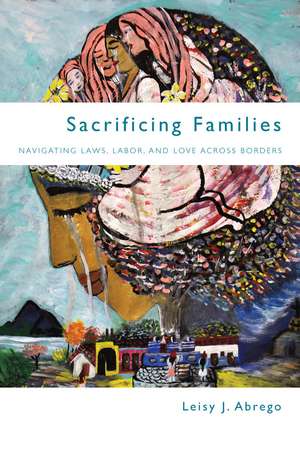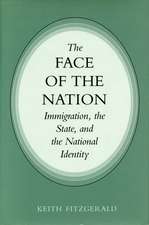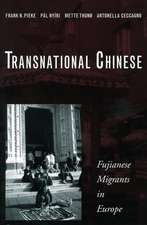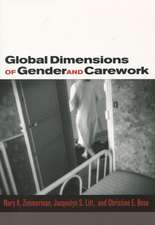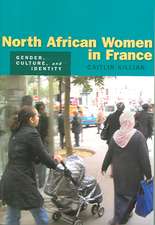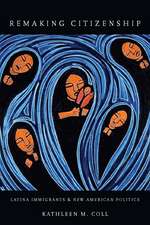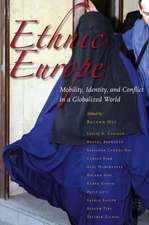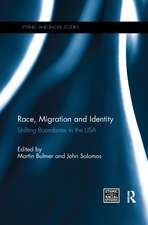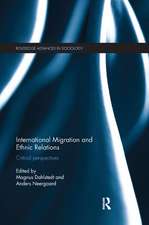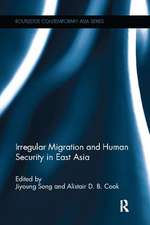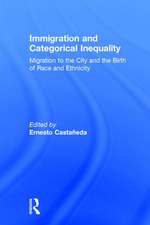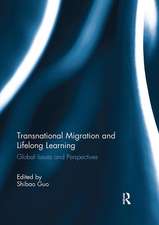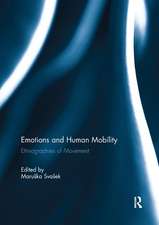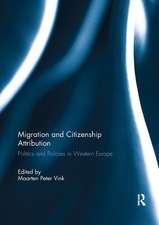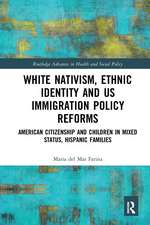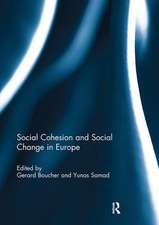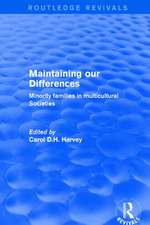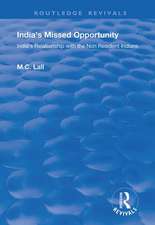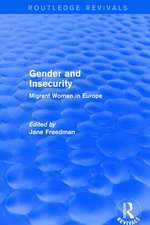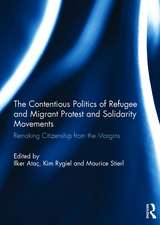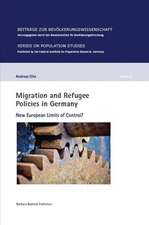Sacrificing Families: Navigating Laws, Labor, and Love Across Borders
Autor Leisy Abregoen Limba Engleză Paperback – 4 feb 2014
Widening global inequalities make it difficult for parents in developing nations to provide for their children, and both mothers and fathers often find that migration in search of higher wages is their only hope. Their dreams are straightforward: with more money, they can improve their children's lives. But the reality of their experiences is often harsh, and structural barriers—particularly those rooted in immigration policies and gender inequities—prevent many from reaching their economic goals.
Sacrificing Families offers a first-hand look at Salvadoran transnational families, how the parents fare in the United States, and the experiences of the children back home. It captures the tragedy of these families' daily living arrangements, but also delves deeper to expose the structural context that creates and sustains patterns of inequality in their well-being. What prevents these parents from migrating with their children? What are these families' experiences with long-term separation? And why do some ultimately fare better than others?
As free trade agreements expand and nation-states open doors widely for products and profits while closing them tightly for refugees and migrants, these transnational families are not only becoming more common, but they are living through lengthier separations. Leisy Abrego gives voice to these immigrants and their families and documents the inequalities across their experiences.
Sacrificing Families offers a first-hand look at Salvadoran transnational families, how the parents fare in the United States, and the experiences of the children back home. It captures the tragedy of these families' daily living arrangements, but also delves deeper to expose the structural context that creates and sustains patterns of inequality in their well-being. What prevents these parents from migrating with their children? What are these families' experiences with long-term separation? And why do some ultimately fare better than others?
As free trade agreements expand and nation-states open doors widely for products and profits while closing them tightly for refugees and migrants, these transnational families are not only becoming more common, but they are living through lengthier separations. Leisy Abrego gives voice to these immigrants and their families and documents the inequalities across their experiences.
| Toate formatele și edițiile | Preț | Express |
|---|---|---|
| Paperback (1) | 155.89 lei 3-5 săpt. | |
| Stanford University Press – 4 feb 2014 | 155.89 lei 3-5 săpt. | |
| Hardback (1) | 590.00 lei 6-8 săpt. | |
| Stanford University Press – 4 feb 2014 | 590.00 lei 6-8 săpt. |
Preț: 155.89 lei
Nou
Puncte Express: 234
Preț estimativ în valută:
29.83€ • 31.11$ • 24.79£
29.83€ • 31.11$ • 24.79£
Carte disponibilă
Livrare economică 27 februarie-13 martie
Preluare comenzi: 021 569.72.76
Specificații
ISBN-13: 9780804790512
ISBN-10: 0804790515
Pagini: 272
Dimensiuni: 152 x 229 x 20 mm
Greutate: 0.39 kg
Editura: Stanford University Press
Colecția Stanford University Press
ISBN-10: 0804790515
Pagini: 272
Dimensiuni: 152 x 229 x 20 mm
Greutate: 0.39 kg
Editura: Stanford University Press
Colecția Stanford University Press
Recenzii
"Sacrificing Families is an important new book analyzing what can be described as the psychosocial interior of transnational Salvadoran families and how that familial social life is structured and traumatized by America's current immigration regime . . . The book is an important step in what is developing into a very promising scholarly career."—Robert C. Smith, American Journal of Sociology
"Sacrificing Families approaches the issue of transnational migration from El Salvador to the United States from a unique perspective. Instead of the public debate in the United States, it's the debate in El Salvador that frames Leisy Abrego's argument. And while the experiences of migrants play a role, her focus is more on the children left behind when parents leave to work in the United States . . . In a debate dominated by rhetoric and statistics, the voices of these children raise extremely important issues . . . [T]his is a book that will stay with me and that I intend to assign to both undergraduate and graduate students."—Aviva Chomsky, Hispanic American Historical Review
"Abrego examines the causes and consequences of migration of parents from El Salvador to the U.S. She focuses on the structure of trauma of long-term family separation, different experiences based on gender, and the impact on the socioeconomic and emotional lives of children . . . Using in-depth interviews of parents in the U.S. and children in El Salvador, the author reveals the tragedies and triumphs of these families' living arrangements; patterns of inequalities; migrant parents' sacrifices, including monetary remittances to their children; the profound emotional suffering; and children's school performances and aspirations. Furthermore, this research demonstrates how U.S. immigration policy determines the life chances and well-being of children and how gender ideologies influence women's and men's opportunities and behavior. Abrego presents a detailed, careful analysis of the micro-social realities of family separation across nations. She outlines the policy implications of this research and emphasizes the need for comprehensive U.S. immigration reform as a human rights issue. An outstanding contribution to immigration, family, Chicana/o, and policy studies . . . Highly recommended."—D. A. Chekki, CHOICE
"In this insightful and compassionate book, Leisy Abrego sheds light on the devastating and far-reaching effects of the contemporary immigration regime on immigrant families and their relatives back home. The voices of these immigrant families vividly combine with Abrego's sophisticated analysis to make us rethink what it means to live in transnational spaces today. A must read for anyone interested in families and immigration policy."—Cecilia Menjívar, Arizona State University
"Leisy Abrego provides an eloquent, empathic view of the agonizing choices made by transnational parents and the consequences for their children. The poignant quotes—from parents and children alike—along Abrego's thoughtful analysis make this an essential read."—Carola Suárez-Orozco, University of California, Los Angeles
"Leisy Abrego renders in heart-wrenching detail what it means to live as a family separated by thousands of miles. Sacrificing Families is a must read on why families choose to become transnational, how they struggle to overcome distance and time, and the United States immigration policies that force this cultural and emotional divide."—Leo R. Chavez, University of California, Irvine, author of The Latino Threat: Constructing Immigrants, Citizens, and the Nation
"Leisy Abrego renders in heart-wrenching detail what it means to live as a family separated by thousands of miles. Sacrificing Families is a must read on why families choose to become transnational, how they struggle to overcome distance and time, and the United States immigration policies that force this cultural and emotional divide."—Leo R. Chavez, University of California, Irvine, author of The Latino Threat: Constructing Immigrants, Citizens, and the Nation
Notă biografică
Leisy Abrego is Assistant Professor of Chicana/o Studies at the University of California, Los Angeles.
Descriere
This book is about how U.S. immigration policies and immigrants' gendered experiences stratify the well-being of Salvadoran mothers and fathers in the United States and their children who remain in El Salvador.
